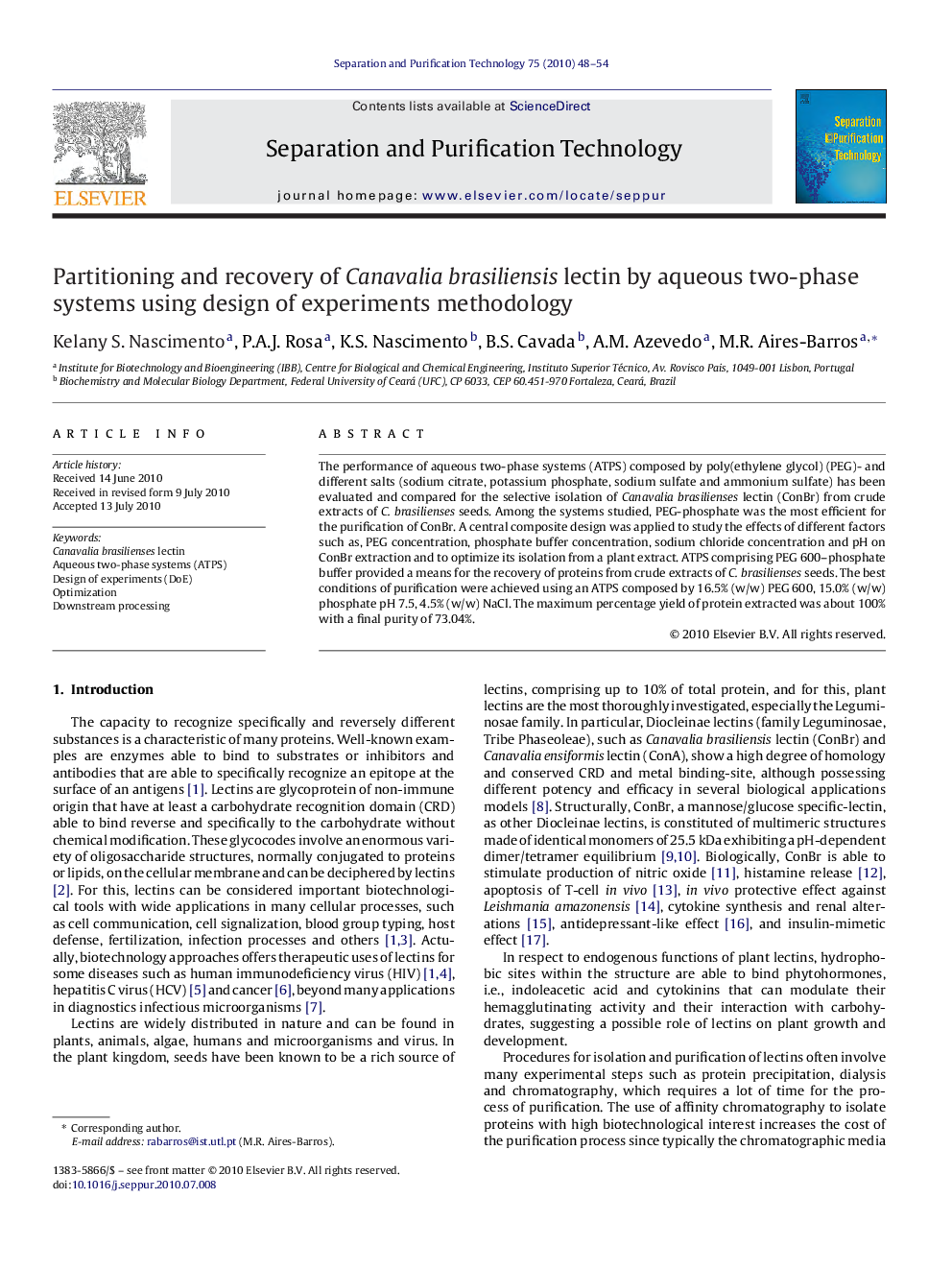| Article ID | Journal | Published Year | Pages | File Type |
|---|---|---|---|---|
| 642899 | Separation and Purification Technology | 2010 | 7 Pages |
The performance of aqueous two-phase systems (ATPS) composed by poly(ethylene glycol) (PEG)- and different salts (sodium citrate, potassium phosphate, sodium sulfate and ammonium sulfate) has been evaluated and compared for the selective isolation of Canavalia brasilienses lectin (ConBr) from crude extracts of C. brasilienses seeds. Among the systems studied, PEG-phosphate was the most efficient for the purification of ConBr. A central composite design was applied to study the effects of different factors such as, PEG concentration, phosphate buffer concentration, sodium chloride concentration and pH on ConBr extraction and to optimize its isolation from a plant extract. ATPS comprising PEG 600–phosphate buffer provided a means for the recovery of proteins from crude extracts of C. brasilienses seeds. The best conditions of purification were achieved using an ATPS composed by 16.5% (w/w) PEG 600, 15.0% (w/w) phosphate pH 7.5, 4.5% (w/w) NaCl. The maximum percentage yield of protein extracted was about 100% with a final purity of 73.04%.
Research highlights▶ ATPS processes highly feasible for the recovery of ConBr lectins from crude plant extracts. ▶ Design of experiments allow the identification of the factors that influence the partition of ConBr in the biphasic system. ▶ NaCl enhances the partitioning of ConBr towards the PEG-rich phase. ▶ Most favorable condition for recovery was found to be 16.5% (w/w) PEG 600, 15% (w/w) potassium phosphate buffer, pH 7.5 and 4.5% (w/w) NaCl.
